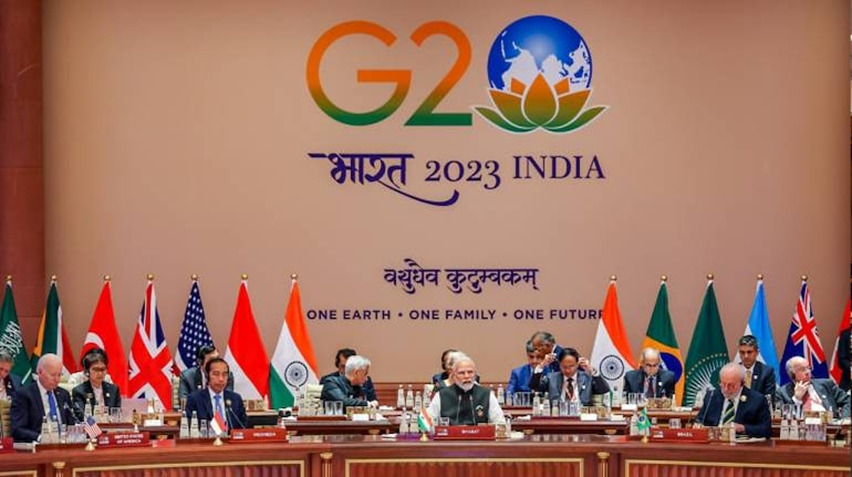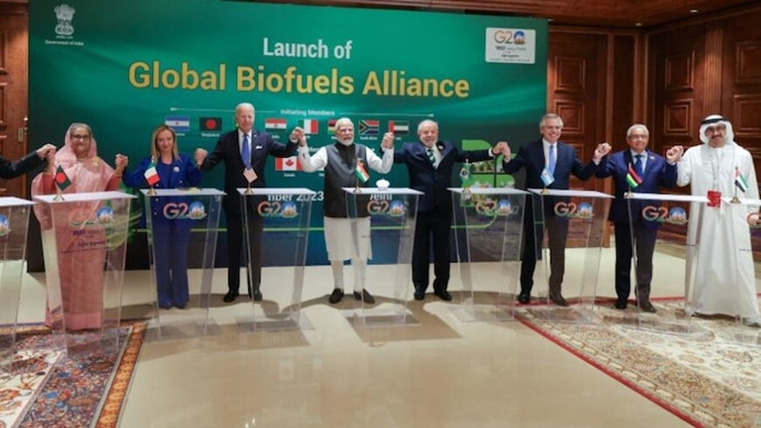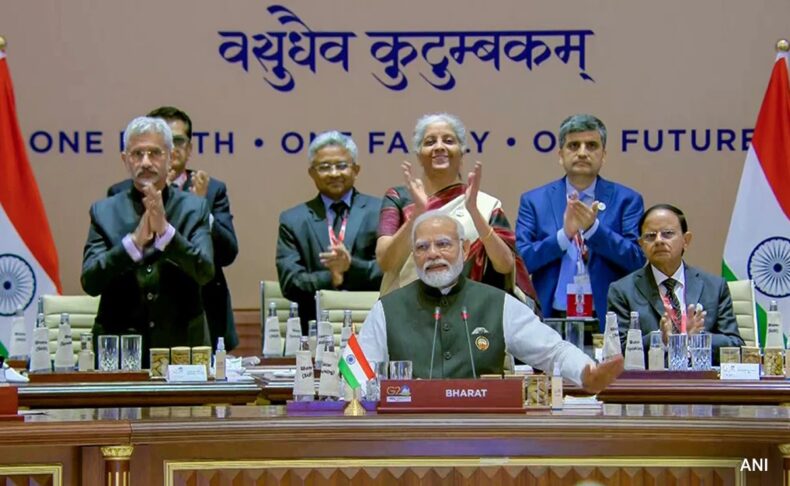The G20 Summit being held in the National Capital of India on the 9th and 10th of September has engraved a historic success for itself with the passing of the New Delhi Declaration with a 100% consensus becoming proof of India’s successful abilities as a diplomat and its promising role as a potential world leader.

What is the New Delhi Declaration?
With the core ideology of “One Earth, One Family, one Future”, the Preamble of the Declaration projects the goals of attaining peace and prosperity for the planet and people, thus advocating inclusive growth through sustainable development.
Divided into 10 sections with further sub sections, the consensus document, calls for strong and sustainable financial inclusive growth by fighting corruption, unlocking the free trade potential and ensuring financial inclusion. Calling for culture as a “transformative driver” for achieving SDGs, it calls for ensuring food security and access to healthcare and education as a must.
There is also “The Green Development Pact for a Sustainable Future” which advocates for Life, Circular Economy, building disaster resilient infrastructure, ending plastic consumption while advocating for sustainable finance, ensuring inclusive energy transition and calling for addressing and preparing for the risks associated with transitioning of climate.
Delivering on its promise of discussions on an inclusive digital infrastructure, the document mentions the importance of fostering digital ecosystems and harnessing of Artificial Intelligence while promoting safety and security of the people. It promises on building a resilient digital public infrastructure and building trust of the public in such digital ecosystems. There is also mention of International Taxation and Central Bank Digital Currencies in the sub sections of the document.
The Declaration highlights the grave threat that terrorism poses to the sovereignty of countries and money laundering associated with it. It also discusses probable reforms for the financial sector.
Lastly, but most importantly, the declaration dedicates a chapter towards women empowerment, promising to create a working group for women empowerment, accepting them as important stakeholders in building climate resilience as well as ensuring food security while ensuring their social and economic empowerment. It also calls for reducing the digital divide between men and women.
The New Delhi Declaration, also now the consensus document lays down the pathway for a future where no one and no thing is left behind. With a special focus on the marginalized sections of environment, women and all other vulnerable groups who have been deprived of financial and technological access, the declaration creates a vision for a promising future.
What does it mean for India?

The Declaration, signed under India’s leadership becomes a marker of the country’s rising presence in world affairs as a promising player of a multipolar world order.
The inclusion of the African Union on the very first day of the Summit adds value to its promise of being a fair representative for the Global South. The India-Middle East- European Economic Character which connects Indian markets with that of West Asian and Europe builds itself on I2U2 and Abraham Accords and acts as a strong alternative to China’s BRI.
The launch of the Global Biofuels Alliance further strengthens India’s position as a mitigator of climate change. Additionally, the document also calls out those who have been using force for territorial accession as well as those wish to do so in the future.
The diplomatic victory for India comes at a time when the global world order is in turmoil. The New Delhi Declaration, on the face of it addresses all global concerns, especially those faced by the developing and underdeveloped nations, while making the developed nations take responsibility of their actions and role in facilitating the creation of an inclusive and sustainable future. The open praise for India’s leadership at the G20 Summit then opens up various pathways for it in the channels of international diplomacy and membership to various groupings which are seeking to remain neutral in a world so divided.
In such a scenario, who better than the one who remained non-aligned during the cold war and the one who continues to exert its strategic autonomy whilst fulfilling its promises towards all nations even today, India.













